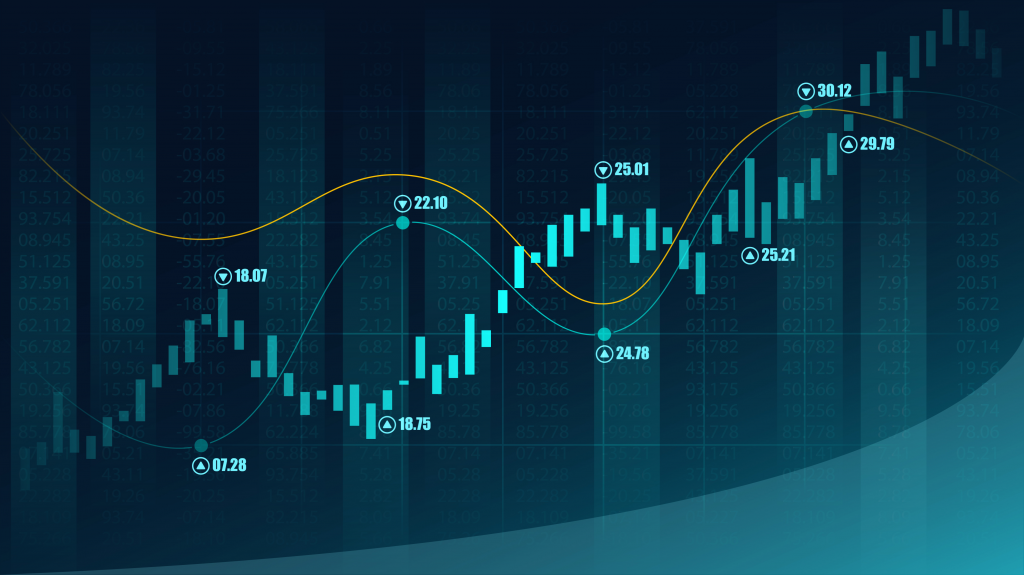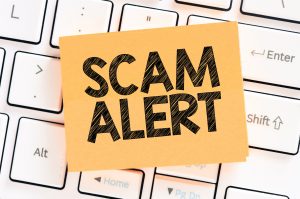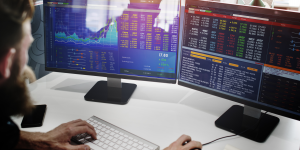More and more people seem to be investing in the forex (foreign exchange) markets these days – but what exactly is forex trading, how does it work, and how can you potentially make money from it?
The forex market comprises a huge global network of banks, private equity funds, hedge funds, mutual funds, exchange-traded funds, businesses, and individuals. The markets are open twenty-four-seven, and it’s a decentralized system, meaning that it’s not controlled by any central government or organization.
Forex trading is the process of buying and selling currencies against each other; there are currently over one hundred currency pairs in existence that can be traded, with the most liquid pairing being, at this time, EUR/USD.
How Do I Get Started with Forex Trading?
Getting started is relatively easy, although there is a lot to learn. It’s vital that, before trading for the first time, you understand the markets and their mechanisms thoroughly: there are plenty of online courses that can give you the information you need.
Once you’re ready, use the steps below to guide you through the process of beginning to trade on the forex markets:
Choose Your Trading Style
To get started, you’ll need to think about the type of trader you plan to be, and this will largely be dictated by the amount of time you have available – and that you wish – to monitor the markets and to trade. Position trading is usually the best option for those who will only be able, or want, to check in with the markets once a day, whereas if you’re planning to dedicate a short amount of time a few times through the day, then swing trading is likely to be most suitable for you. Scalping is probably the best choice if you can dedicate an hour (or a few continuous hours) a day, or on some days, to trading.
If time isn’t an issue, then, once you’ve got to grips with forex trading, you could operate using more than one style of trading if you wish to. For beginners, swing and position trading are recommended as scalping is considered to be the most complex trading style of the three.
Decide on the Maximum Capital You Will Risk
This step is crucial: before you even begin trading, it’s important to establish exactly how much money you are prepared to risk and only trade with what you can afford to lose. When it comes to learning the forex markets, it can be a very steep uphill curve, and, due to this, the majority of forex traders suffer significant losses during their first few months of trading. Knowing where to draw the line, and being absolutely disciplined about not going over it, will help you manage your risk and not end up in financial difficulties.
Select Your Trading Strategy
Deciding on the strategy of trading you’ll use is vital and can assist you in working out a consistent approach to, for example, your entrance and exit strategies. There are a multitude of different trading strategies, and you can find out more about these – including their pros and cons – online.
Be sure to back-test your chosen strategy, to have confidence that it has the potential to deliver over the long-term for you and that it suits your personal style of trading.
Choose a Forex Broker
Next, it’s time to open an account with a forex broker. It’s extremely important to do some research to make sure that the broker you’re considering is legitimate and credible; you can read more below on the dangers of getting caught up with a scam forex broker. Check that the broker is fully regulated by a stringent financial body and is operating with all the necessary licenses in place.
It’s a great idea to choose a broker that offers a demo account that you can use before committing. A demo account will let you see exactly how the platform works and make you aware of the general trading conditions you’ll be subject to. Take some time to also look up plenty of reviews from current and former platform users to find out more about the service and reliability you can expect.
What Are the Main Ways to Trade Forex?
There are four main ways to trade forex:
Futures – Currency futures are well-regulated and typically have less liquidity than other forms of forex.
Options – Traders often trade this type of forex when they want to hedge their positions.
ETFs – Exchange Traded Funds act as passive assets and can consist of a single currency or a collection of currencies.
Spot FX – An over-the-counter product, this option regards on the spot exchanges of a currency pair at market price.
What Can Affect the Forex Markets?
Trading on the forex markets can be exciting, which is part of what draws many people to this type of investment. This is largely because they can be easily moved by worldwide events. In general, the three main things that can cause shifts in the markets concern economic data, geopolitics, and central bank policy. While some of these factors have a level of predictability, others are totally random, and while this makes for the excitement inherent in this type of trading, it also causes the volatility that can generate significant losses – this should be taken into account when putting together your risk management and trading strategy.
How to Manage Risk
Trading on the forex markets is, by nature, a risky business, but there are steps that traders can take to mitigate this, for example, by incorporating a stop-loss order into their trades. This type of order means that a trader’s losses will never exceed a certain amount by closing a trading position at a set level.
Limit orders are often used in conjunction with stop-loss orders; buy and sell limit orders work as they trigger buying and selling positions only when a price reaches a certain point.
What Forex Trading Scams Do I Need to Be Aware Of?
Unfortunately, this arena is rife with scammers and con artists, and hundreds of people fall victim to forex trading fraud every year.
One of the most prevalent scams is the Ponzi scheme. In this case, you’ll come across an online forex broker or receive a link or email communication regarding one that seems legit. You sign up to the platform, begin trading, and will probably receive a small return on your trades very quickly. You’ll typically get offered a commission for new members that you persuade to join the platform.
However, the trading side of the platform is often a front – no real trading is going on at all, and the only money coming into the organization is through the investment of new members. Once this dries up, the website will typically close down, and the scammers behind it will disappear – taking all the money in the pot with them. Before this happens, you will probably find yourself bombarded with calls from representatives of the fraudulent brokerage platform, using high-pressure sales tactics to invest more regularly and with ever higher amounts of money. If you get suspicious and try to withdraw your funds, you’ll likely find that you are unable to: either your account will have been frozen or, to get at the money, you’ll be required to pay an extortionate withdrawal charge.
How To Protect Yourself From Forex Trading Scams?
To avoid falling victim to a scam like the above or others relating to forex trading, it’s vital to never sign up to a brokerage platform without thoroughly checking its credentials first. You should make certain that it is regulated and licensed. This isn’t always as easy as it seems: the stringency of regulations varies from country to country, so what could be a disallowed practice in one territory could be totally acceptable elsewhere. Choose a brokerage platform that falls under the oversight of a highly-regarded financial ombudsman to protect your funds and for peace of mind.
Another good idea, before signing up or investing any money, is to check with the relevant regulator (such as the FCA in the UK) under whose jurisdiction the platform falls to see if they have issued any warnings against the broker you’re considering.
What Should I Do If I Have Been Scammed?
If you’ve already lost money as a result of a forex trading scam, either like the Ponzi scheme detailed above or via another type of con, then it’s important to take action as soon as possible for the best chance of getting your investment refunded.
Tracking down the scammers and your stolen money is likely to be time-consuming and extremely stressful, and subsequently, many people turn to a company like Worldwide Recovery that specializes in reclaiming investments lost to financial fraud.
As well as fighting the case on your behalf, these types of companies also provide the support you need to help navigate the process and can give you valuable resources to prevent you from being scammed again in the future.



